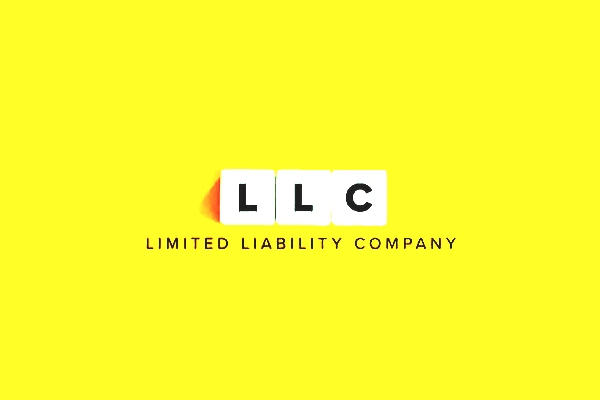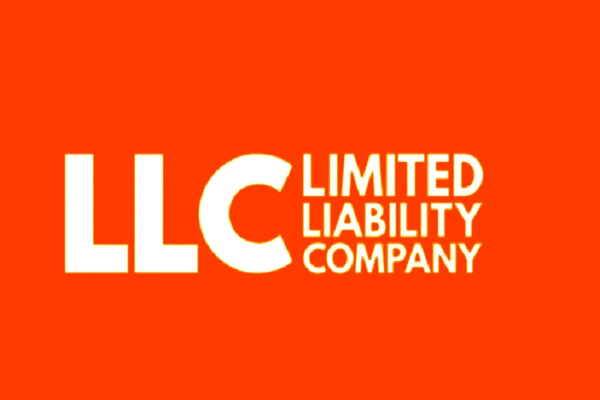Introduction
A limited liability company (LLC) is a business structure that combines the pass-through taxation of a partnership or sole proprietorship with the limited liability of a corporation. LLCs are popular among small business owners because they offer the flexibility of a partnership or sole proprietorship while providing the limited liability protection of a corporation. This guide will provide an overview of LLCs, including their advantages and disadvantages, how to form an LLC, and the tax implications of an LLC.

What Is a Limited Liability Company (LLC) and How Does It Work?
A Limited Liability Company (LLC) is a business structure that combines the pass-through taxation of a partnership or sole proprietorship with the limited liability of a corporation. This type of business structure is popular among small business owners because it offers the flexibility of a partnership or sole proprietorship while providing the limited liability of a corporation.
An LLC is formed by filing articles of organization with the state in which the business will be located. The articles of organization must include the name of the LLC, the purpose of the LLC, the name and address of the registered agent, and the name and address of each member. Once the articles of organization are filed, the LLC is officially formed.
The members of an LLC are not personally liable for the debts and obligations of the business. This means that if the LLC is sued or incurs debt, the members’ personal assets are not at risk. This is one of the main advantages of forming an LLC.
The LLC is also a pass-through entity, meaning that the profits and losses of the business are passed through to the members and reported on their individual tax returns. This allows the members to avoid double taxation, which is a common issue with corporations.
The LLC also offers flexibility when it comes to management. The members can choose to manage the business themselves or appoint a manager to handle the day-to-day operations. This allows the members to focus on growing the business without having to worry about the administrative tasks.
Overall, an LLC is a popular business structure for small business owners because it offers the limited liability of a corporation while allowing the flexibility and pass-through taxation of a partnership or sole proprietorship.
What Are the Benefits of Forming an LLC?
Forming a Limited Liability Company (LLC) offers a number of benefits to business owners. An LLC is a business structure that combines the limited liability of a corporation with the flexibility and pass-through taxation of a partnership. Here are some of the key benefits of forming an LLC:
1. Limited Liability: One of the primary benefits of forming an LLC is that it provides limited liability protection for its owners. This means that the owners of the LLC are not personally liable for the debts and obligations of the business. This protection is especially important for businesses that are exposed to potential liability, such as those that provide professional services.
2. Flexible Management Structure: LLCs offer a flexible management structure that allows owners to choose how the business is managed. Owners can choose to manage the business themselves or appoint a manager to oversee the day-to-day operations.
3. Pass-Through Taxation: LLCs are taxed as pass-through entities, meaning that the business’s income is passed through to the owners and taxed at their individual tax rates. This can result in significant tax savings for the owners.
4. Easy to Form: Forming an LLC is relatively easy and inexpensive. Most states have streamlined the process, allowing business owners to quickly and easily form an LLC.
Forming an LLC offers a number of benefits to business owners, including limited liability protection, a flexible management structure, pass-through taxation, and easy formation. For these reasons, many business owners choose to form an LLC to protect their personal assets and take advantage of the tax benefits.
What Are the Steps to Forming an LLC?
Forming an LLC (Limited Liability Company) is a great way to protect your personal assets and provide a legal structure for your business. Here are the steps to forming an LLC:
1. Choose a Name: The name of your LLC must be unique and should not be similar to any existing business. It must also include the phrase “Limited Liability Company” or an abbreviation such as “LLC” or “L.L.C.”
2. File Articles of Organization: This document is filed with the Secretary of State in the state where you plan to operate your business. It includes information such as the name of the LLC, the purpose of the LLC, the address of the LLC, and the name and address of the LLC’s registered agent.
3. Create an Operating Agreement: This document outlines the rules and regulations of the LLC and how it will be managed. It should include information such as the ownership structure, voting rights, and how profits and losses will be distributed.
4. Obtain an Employer Identification Number (EIN): This is a unique nine-digit number assigned by the IRS to identify your business. It is used for tax purposes and to open a business bank account.
5. Comply with State and Local Regulations: Depending on the type of business you are operating, you may need to obtain licenses and permits from the state and local government.
6. Open a Business Bank Account: This will help you keep your business finances separate from your personal finances.
By following these steps, you can form an LLC and protect your personal assets while providing a legal structure for your business.

What Are the Tax Implications of an LLC?
The tax implications of an LLC depend on the type of LLC and the number of members. Generally, LLCs are taxed as either a partnership or a corporation.
If the LLC has one member, it is taxed as a sole proprietorship. The LLC’s income and expenses are reported on the member’s individual tax return. The member is responsible for paying self-employment taxes on the LLC’s profits.
If the LLC has two or more members, it is taxed as a partnership. The LLC’s income and expenses are reported on the members’ individual tax returns. The members are responsible for paying self-employment taxes on the LLC’s profits.
If the LLC elects to be taxed as a corporation, it is subject to corporate income tax. The LLC’s income and expenses are reported on the corporate tax return. The LLC is responsible for paying corporate income taxes on its profits.
In addition to income taxes, LLCs may be subject to other taxes, such as state and local taxes, payroll taxes, and sales taxes. It is important to consult with a tax professional to determine the specific tax implications of an LLC.
What Are the Legal Requirements for an LLC?
Forming an LLC (Limited Liability Company) is a popular choice for business owners who want to protect their personal assets from business liabilities. The legal requirements for forming an LLC vary by state, but there are some general steps that must be taken in order to form a valid LLC.
First, the LLC must be registered with the state in which it will be operating. This involves filing Articles of Organization with the Secretary of State or other appropriate agency. The Articles of Organization must include the name of the LLC, the purpose of the LLC, the address of the LLC, the name and address of the registered agent, and the name and address of each member of the LLC.
Second, the LLC must create an Operating Agreement. This document outlines the rights and responsibilities of each member of the LLC, as well as the rules and regulations that will govern the LLC. The Operating Agreement should be signed by all members of the LLC.
Third, the LLC must obtain any necessary licenses or permits from the state or local government. Depending on the type of business the LLC is engaged in, this may include a business license, a sales tax permit, or other permits.
Finally, the LLC must comply with all applicable federal, state, and local laws. This includes filing any necessary tax returns, paying any applicable taxes, and following any other regulations that may apply to the LLC.
By following these steps, business owners can ensure that their LLC is legally formed and compliant with all applicable laws.
What Are the Different Types of LLCs?
A Limited Liability Company (LLC) is a business structure that combines the pass-through taxation of a partnership or sole proprietorship with the limited liability of a corporation. LLCs are popular among small business owners because they offer flexibility and protection from personal liability. There are several different types of LLCs, each with its own advantages and disadvantages.
The first type of LLC is a single-member LLC. This type of LLC is owned by one person and is not required to file a separate tax return. Single-member LLCs are often used by sole proprietors who want to protect their personal assets from business liabilities.
The second type of LLC is a multi-member LLC. This type of LLC is owned by two or more people and is required to file a separate tax return. Multi-member LLCs are often used by small businesses that want to share profits and losses among the owners.
The third type of LLC is a professional LLC. This type of LLC is owned by professionals such as doctors, lawyers, and accountants who want to limit their personal liability. Professional LLCs are required to file a separate tax return and are subject to additional regulations.
The fourth type of LLC is a series LLC. This type of LLC is owned by one or more people and is divided into separate “series” or “cells”. Each series or cell is treated as a separate entity for tax and liability purposes. Series LLCs are often used by businesses that want to limit their liability and protect their assets.
No matter which type of LLC you choose, it is important to understand the advantages and disadvantages of each type before making a decision. An experienced attorney can help you determine which type of LLC is best for your business.
What Are the Pros and Cons of an LLC?
The Limited Liability Company (LLC) is a business structure that combines the advantages of a corporation with the flexibility of a partnership. LLCs are popular among small business owners because they offer limited liability protection, pass-through taxation, and flexibility in management. However, there are some drawbacks to consider before forming an LLC.

Pros:
1. Limited Liability Protection: LLCs provide limited liability protection for their owners, meaning that the owners are not personally liable for the debts and obligations of the business. This means that if the business is sued, the owners’ personal assets are not at risk.
2. Pass-Through Taxation: LLCs are not subject to double taxation like corporations. Instead, the profits and losses of the business “pass through” to the owners, who report them on their personal tax returns.
3. Flexibility in Management: LLCs are not required to have a board of directors or officers, and the owners can decide how the business is managed. This allows for more flexibility in decision-making and can make it easier to manage the business.
Cons:
1. Cost: Forming an LLC can be expensive, as there are filing fees and other costs associated with setting up the business.
2. Complexity: LLCs can be more complex to set up and manage than other business structures, such as sole proprietorships or partnerships.
3. Limited Life: LLCs have a limited life, meaning that if one of the owners dies or leaves the business, the LLC must be dissolved and the assets distributed to the owners.
In conclusion, LLCs offer many advantages, such as limited liability protection, pass-through taxation, and flexibility in management. However, there are some drawbacks to consider, such as the cost of formation, complexity of management, and limited life of the business.
What Are the Common Mistakes to Avoid When Forming an LLC?
When forming an LLC, it is important to avoid common mistakes that can lead to costly and time-consuming problems. Here are some of the most common mistakes to avoid when forming an LLC:
1. Not researching the name of the LLC: Before filing the paperwork, it is important to research the name of the LLC to make sure it is not already in use.
2. Not filing the paperwork correctly: Filing the paperwork incorrectly can lead to delays in the formation of the LLC. It is important to make sure all the paperwork is filled out correctly and filed with the appropriate state agency.
3. Not creating an operating agreement: An operating agreement is a document that outlines the rights and responsibilities of the members of the LLC. It is important to create an operating agreement to ensure that all members are on the same page.
4. Not obtaining the necessary licenses and permits: Depending on the type of business, there may be certain licenses and permits that are required. It is important to research the requirements and obtain the necessary licenses and permits before starting operations.
5. Not keeping accurate records: It is important to keep accurate records of all transactions and activities related to the LLC. This will help ensure that the LLC is in compliance with all applicable laws and regulations.
By avoiding these common mistakes, you can ensure that your LLC is properly formed and that it is in compliance with all applicable laws and regulations.
Q&A
1. What is a Limited Liability Company (LLC)?
A Limited Liability Company (LLC) is a business structure that combines the pass-through taxation of a partnership or sole proprietorship with the limited liability of a corporation. This type of business structure provides its owners with personal liability protection from business debts and obligations.
2. What are the benefits of forming an LLC?
The main benefits of forming an LLC are limited liability protection, pass-through taxation, and flexibility in management structure. Limited liability protection means that the owners of the LLC are not personally liable for the debts and obligations of the business. Pass-through taxation means that the LLC’s profits and losses are passed through to the owners and reported on their individual tax returns. Lastly, LLCs have flexibility in management structure, meaning that the owners can choose to manage the business themselves or appoint a manager to do so.
3. What are the requirements for forming an LLC?
The requirements for forming an LLC vary by state, but generally include filing articles of organization with the state, obtaining an Employer Identification Number (EIN) from the IRS, and creating an operating agreement. Depending on the state, there may also be additional requirements such as registering with the state’s department of taxation or obtaining a business license.
4. How much does it cost to form an LLC?
The cost of forming an LLC varies by state, but typically ranges from $50 to $500. In addition to the filing fee, there may also be additional costs such as legal fees, accounting fees, and other professional services.
5. What is the difference between an LLC and a corporation?
The main difference between an LLC and a corporation is the way they are taxed. LLCs are pass-through entities, meaning that the profits and losses are passed through to the owners and reported on their individual tax returns. Corporations, on the other hand, are taxed as separate entities and must file their own tax returns. Additionally, LLCs have more flexibility in management structure than corporations.
6. What is the difference between an LLC and a partnership?
The main difference between an LLC and a partnership is the way they are taxed. LLCs are pass-through entities, meaning that the profits and losses are passed through to the owners and reported on their individual tax returns. Partnerships, on the other hand, are taxed as separate entities and must file their own tax returns. Additionally, LLCs provide limited liability protection for their owners, while partnerships do not.
7. What is the difference between an LLC and a sole proprietorship?
The main difference between an LLC and a sole proprietorship is the way they are taxed. LLCs are pass-through entities, meaning that the profits and losses are passed through to the owners and reported on their individual tax returns. Sole proprietorships, on the other hand, are taxed as separate entities and must file their own tax returns. Additionally, LLCs provide limited liability protection for their owners, while sole proprietorships do not.
8. What is the best way to manage an LLC?
The best way to manage an LLC depends on the size and complexity of the business. Generally, it is recommended that LLCs have an operating agreement that outlines the roles and responsibilities of the owners and managers. Additionally, it is important to keep accurate financial records and to consult with a qualified accountant or attorney when necessary.
Conclusion
A Limited Liability Company (LLC) is a great business structure for entrepreneurs who want to limit their personal liability while still enjoying the benefits of a corporation. LLCs offer flexibility in terms of ownership, management, and taxation, and can be used to protect personal assets from business debts and liabilities. With the right guidance and advice, an LLC can be a great way to start and grow a business.

